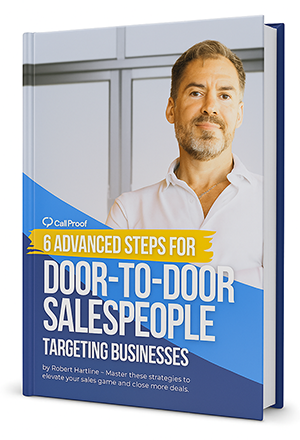CRMs started off on the wrong foot. When they first came out, they were isolated to a desktop and not user friendly. Back then, laptops, WiFi, and smartphones weren’t around to allow mobile access to data. So the outside salesperson was forced to go back to the office to enter information. And the CRM became a ball and chain.
Salespeople who’ve been in the business a while have witnessed the evolution of the CRM firsthand. Some now appreciate it, but many still hate it. Their bad experiences with CRMs leave them with little motivation to adopt a new one now. Maybe they got fired for not using it years ago. Maybe they think of it as a clunky, outdated tool. Now, they just roll their eyes every time it’s mentioned.
But the fact of the matter is, you need all your salespeople on board for a CRM to be effective. A CRM (no matter how current, user friendly, and efficient) is useless without good data. And the most vital data is contact information for prospects and clients. Who enters this info? The very salespeople that hate using it.
So if you’re ready to get a CRM that works, start by getting your salespeople on board.
Why Good Salespeople Hate CRMs
Good salespeople hate CRMs that get in their way. They want to go out and sell without having to pause their activity to enter cumbersome information. But with the right automation and set-up, a CRM like CallProof lets them simply check off information on their phone.
Imagine a big whiteboard with a list of all your customers. Each time you contact someone, you check them off. The next day, you look at your list and evaluate, “Who did I contact? What promises did I make? Who should I follow up with?” CallProof gives you this checklist digitally (via your mobile device or your desktop — whichever you prefer). Plus, we even remind you to make the check mark.
Related: Why Everything You Know About CRM Is 100% Wrong
Even the best salespeople need reminders. Selling is contacting and following up. No matter how smart someone is, it’s impossible to remember the details of 30-60 conversations per day with full clarity. Then it compounds. If you contact that many people, making promises to follow up with even half of them, you’re dealing with about 75 points of action to remember each week. But what if you forget? Each proposal that slips through the cracks or question that goes unanswered turns into an empty promise that cripples your credibility for future sales.
Enter a CRM that notifies you when it’s time for action.
Why Bad Salespeople Hate CRMs
Bad salespeople hate CRMs that show their real performance. They don’t want their managers to see evidence of the inactivity that leads to their poor performance.
But a good manager wants to know the truth. People who need to make a car payment and pay their mortgage create stories about deals they’re “trying to close”. But deals don’t close without interaction. Once managers see the correspondence (or lack thereof) between the customer and the sales rep, they’ll know the actual likelihood of the deals.
The Evolution of CRM
A CRM simply provides direction for where to spend energy and time. It keeps your list of prospects and clients organized so you know who to call first. With a clear client list, salespeople know where to start.
Back in the day, you had to enter all this information in a database on your own. Now, an app like CallProof automates your daily activities and allows you to “check” items off your list while simultaneously logging your activity. It keeps teams on track and holds them accountable. It even reminds you when to take action on the promises you’ve made.
So don’t let preconceptions of a cumbersome, stationary CRM keep your team from utilizing this tool. CRMs have evolved into mobile apps that make documentation simple. It’s time to get your team on board.


